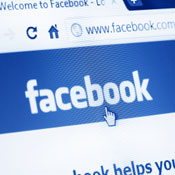Critics Slam U.K. Government for "Posturing," Under-spending

A new U.K. government report has accused social networks of serving as a "safe haven for terrorists," inflaming what some observers see as already tense relations between the British government and Silicon Valley.
See Also: Achieving Real-time Breach Discovery: The Role of Threat Intelligence
The report, issued by Parliament's Intelligence and Security Committee, comes in response to the murder of British solider Lee Rigby in 2013 by British citizens Michael Adebolajo and Michael Adebowale. The two men attacked Rigby on the streets of Woolrich - a district in southeast London - as he was returning to his Army barracks, first running into him from behind with their car, and then attacking him with knives.
Parliament's report says an unnamed social network - later revealed in multiple press reports to be Facebook - "could have made a difference" in preventing the attack, if only it had flagged a December 2012 discussion, conducted using the social network, in which Adebowale told an extremist overseas codenamed "Foxtrot" that he wanted to kill a soldier "in the most graphic and emotive manner - because of U.K. military action in Iraq and Afghanistan."
A variety of U.K. government officials have blamed Facebook for not preventing the attack. "This company does not appear to regard itself as under any obligation to ensure that its systems identify such exchanges, or to take action or notify the authorities when its communications services appear to be used by terrorists," says MP Malcolm Rifkind, who chairs the Intelligence and Security Committee. "There is therefore a risk that, however unintentionally, it provides a safe haven for terrorists to communicate within."
But the committee doesn't hold the intelligence services responsible for failing to prevent Rigby's murder, despite cataloging a string of investigatory errors. "We do not consider that any of these errors, taken individually, were significant enough to have made a difference," Rifkind says.
Prime Minister David Cameron, who issued a statement in response to the report, says Internet firms must devote more resources to combating terrorism. "Terrorists are using the Internet to communicate with each other. We must not accept that these communications are beyond the reach of the companies," Cameron says. "We expect the Internet companies to do all they can ... It is their social responsibility to act on this." Cameron also announced that the U.K. government would spend an additional £130 million ($200 million) over the next two years to combat "lone wolf" terrorists.
Reached for comment, Facebook declined to discuss the report's conclusions or Cameron's comments. "Like everyone else, we were horrified by the vicious murder of Fusilier Lee Rigby," a Facebook spokesman tells Information Security Media Group. "We don't comment on individual cases, but Facebook's policies are clear. We do not allow terrorist content on the site and take steps to prevent people from using our service for these purposes."
Google and Twitter, whose monitoring practices were also discussed in the committee's report, didn't respond to a similar request for comment.
Silicon Valley Outrage
But the blame game has reportedly incensed many Silicon Valley executives. Furthermore, the report comes when relationships between U.S. technology firms and the British government are already strained, after Edward Snowden's leaks revealed that the National Security Agency and GCHQ - respectively U.S. and U.K. intelligence agencies - were hacking directly into the systems of Internet giants such as Facebook as part of a mass surveillance campaign. Earlier this month, meanwhile, the new director of GCHQ blasted social networks for facilitating crime, terrorism and child abuse.
"Given all the information they have, with and without our permission, it is outrageous that they should try and blame Facebook," one Silicon Valley executive tells the Guardian, speaking on condition of anonymity. "The conclusion of the report was: if only Facebook had been doing our job here."
Define Social Responsibility
Richard Barrett, a former counter-terrorism chief at MI5 and MI6 - which respectively focus on domestic and foreign intelligence - disagrees with the committee's finding that Facebook should have done more, noting that the social network's systems had automatically deleted eight accounts used by Adebowale, after flagging them as being used to "promote terrorism."

